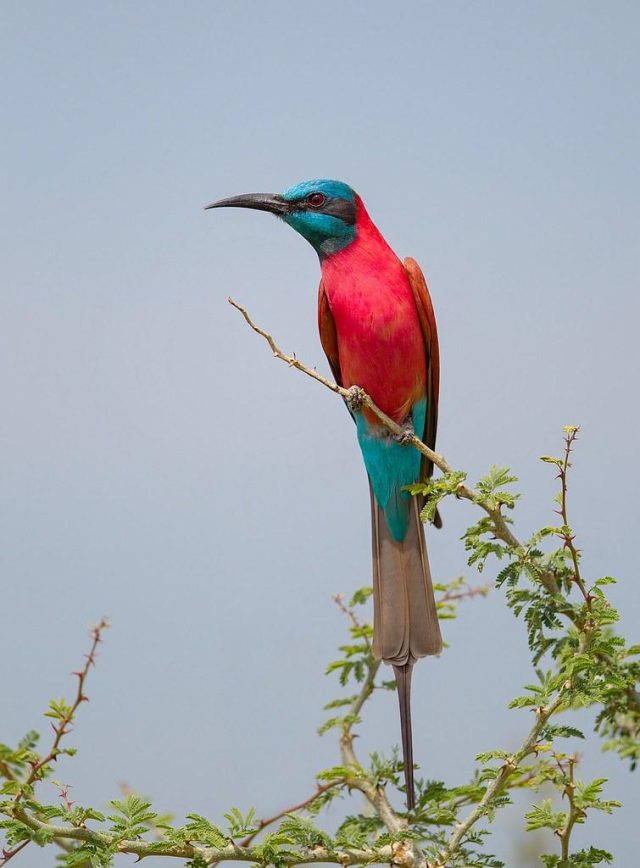As the sun rises over Africa‘s vast landscapes, painting the savannahs and jungles with hues of gold and green, a new kind of traveler emerges—one who seeks not only the thrill of adventure but also the gentle footprint of sustainable exploration. Eco-tourism in Africa is not merely a journey across breathtaking vistas; it is a conscious commitment to preserving the continent’s natural wonders and cultural heritage. In this guide, we delve into the heart of eco-tourism in Africa, offering sustainable travel tips that promise to enrich your experience while safeguarding the delicate ecosystems and vibrant communities that make this continent so unique. Whether you’re traversing the Serengeti or marveling at the Okavango Delta, join us in discovering how to embrace the wild responsibly and leave a positive impact on Africa’s cherished lands.
Exploring Africas Wilderness with a Green Footprint
Embarking on a journey through Africa’s breathtaking landscapes offers a unique opportunity to witness the continent’s diverse ecosystems, from the sweeping savannas of the Serengeti to the lush rainforests of the Congo Basin. As travelers become more conscious of their environmental impact, eco-tourism emerges as a promising avenue for those wishing to explore these natural wonders responsibly. By embracing sustainable travel practices, you can contribute to the preservation of Africa’s rich biodiversity while ensuring that future generations can also experience its unparalleled beauty.
To minimize your ecological footprint while exploring Africa, consider these sustainable travel tips:
- Choose eco-friendly accommodations: Opt for lodges and camps that prioritize sustainable practices, such as solar energy, water conservation, and waste management.
- Support local communities: Engage with local guides and purchase souvenirs from community-run initiatives to ensure your money contributes to the local economy.
- Travel lightly: Pack reusable items like water bottles and tote bags to reduce single-use plastics, and choose eco-friendly toiletries.
- Respect wildlife: Keep a safe distance from animals, avoid feeding them, and adhere to park rules to protect their natural habitats.
- Offset your carbon footprint: Consider carbon offset programs to balance the emissions from your flights and other travel activities.
By following these guidelines, you can experience Africa’s wilderness in a way that honors the environment and its inhabitants, making your adventure both unforgettable and sustainable.

Embrace Local Cultures While Preserving Traditions
Traveling sustainably in Africa offers a unique opportunity to connect deeply with diverse communities while ensuring that their rich traditions are respected and preserved. Engaging with local cultures means not just observing but participating in a way that supports and uplifts the community. Here are some mindful practices to consider:
- Participate in Local Festivals: These events are vibrant expressions of cultural heritage. Joining in respectfully can provide insight into traditional customs and foster a sense of community.
- Support Indigenous Artisans: Purchase handcrafted goods directly from artisans. This not only supports their livelihood but also helps in preserving traditional crafts.
- Learn the Language Basics: Even a few words can go a long way in building rapport and showing respect for the local culture.
- Respect Sacred Sites: Always follow guidelines and show reverence when visiting cultural or religious landmarks.
By incorporating these practices, travelers can help ensure that Africa’s cultural heritage thrives alongside its natural wonders. Embrace the journey with an open heart and a mindful approach.

Eco-Friendly Accommodations for the Conscious Traveler
Discovering Africa through the lens of eco-tourism offers a unique opportunity to engage with the continent’s stunning landscapes and rich cultures while supporting sustainable practices. Across Africa, a variety of accommodations are embracing green initiatives to minimize their environmental impact. Whether you’re staying in a solar-powered lodge nestled in the heart of a wildlife reserve or a chic urban hotel utilizing water-saving technologies, the choices are both diverse and impactful.
- Solar Energy: Many lodges and camps are harnessing the power of the sun to provide electricity, ensuring that your stay is powered by clean energy.
- Local Sourcing: By choosing accommodations that source their materials and food locally, you support the community and reduce the carbon footprint associated with transportation.
- Water Conservation: Look for places that implement rainwater harvesting systems and promote the use of eco-friendly toiletries.
- Waste Management: Opt for establishments that practice recycling and composting, contributing to a circular economy.

Wildlife Conservation: How Tourists Can Make a Difference
When exploring Africa’s vast landscapes, tourists have the unique opportunity to contribute positively to wildlife preservation efforts. Choosing eco-friendly tour operators is a significant first step. Look for companies that prioritize sustainability by employing local guides, minimizing environmental impact, and actively participating in conservation projects. These operators often reinvest a portion of their profits into local communities and wildlife initiatives, ensuring that your travel experience supports long-term ecological balance.
Additionally, being a responsible traveler means being mindful of your actions and their impact on the environment. Consider the following sustainable practices:
- Support local artisans by purchasing handmade crafts, which not only provides financial support but also preserves cultural heritage.
- Respect wildlife and natural habitats by keeping a safe distance and not feeding or disturbing animals.
- Reduce waste by carrying reusable water bottles and bags, thus limiting the use of single-use plastics.
- Engage with conservation programs, such as volunteering or participating in educational tours that highlight the importance of biodiversity.
By adopting these practices, tourists can leave a positive mark on the environments they visit, helping to ensure that Africa’s stunning wildlife and natural beauty remain for generations to come.
Wrapping Up
As the African sun dips below the horizon, casting its golden hue over the savannah, we are reminded of the delicate balance between nature and human exploration. Eco-tourism offers a pathway to traverse this enchanting continent with a mindful heart and a sustainable footprint. By embracing the tips shared, travelers can become stewards of Africa’s diverse ecosystems, ensuring that its breathtaking landscapes and vibrant cultures endure for generations to come. Let us journey forward with respect and responsibility, weaving a tapestry of travel that honors the spirit of Africa and celebrates the harmony between humanity and the wild. Safe travels, fellow adventurers, as you embark on your sustainable odyssey across this majestic land.


































